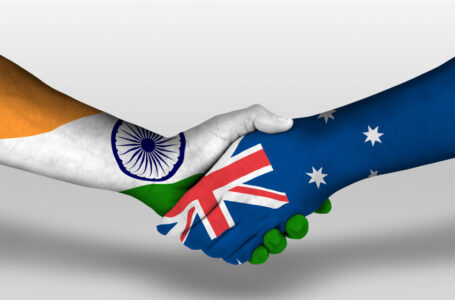Click to Vote – The Perilous Temptation of Digital Elections in Australia

In an age where you can summon a ride with a swipe, order dinner in a tap, and find a date with a click, the notion of standing in line to cast a paper ballot seems archaic. As Australia grapples with the complexities of the modern world, the question arises: Isn’t it time our electoral system moved into the digital age? While the idea may sound appealing, even progressive, the transition to digital elections is fraught with risks and challenges that could fundamentally undermine our democracy.
The Digital Utopia
On the surface, digital voting appears to offer a host of benefits. It promises convenience, greater participation, and a more inclusive electoral process. Imagine casting your vote from the comfort of your home or while sipping a flat white at your local café. This ease of access could, theoretically, boost voter turnout, especially among younger demographics who are notoriously less likely to vote.
The Reality Check: Security Concerns
However, the primary and most glaring issue with digital voting is security. Elections are the bedrock of any democratic society, and their integrity is paramount. From the threat of hacking to the complexities of encryption, digital elections open a Pandora’s box of potential problems. The 2016 U.S. Presidential election serves as a cautionary tale, with allegations of Russian interference still reverberating in American politics. Australia is not immune to such threats; our political system, too, could be vulnerable to external manipulation.
Privacy and Anonymity
Another critical aspect of the electoral process is the anonymity of the vote. A shift to digital voting raises questions about the extent to which anonymity can be guaranteed. With data breaches becoming increasingly common, the risk of voter data being compromised is a genuine concern. Furthermore, the anonymity of a digital vote could be harder to ensure, opening up possibilities for voter intimidation or even vote-selling.
The Digital Divide
While digital voting may seem inclusive, it risks widening the gap between various demographics. Older Australians, rural communities, and those without access to reliable internet could find themselves marginalised in a digital electoral system. The ‘digital divide’ is a real issue, and a move to online voting could exacerbate existing inequalities.
Cost and Implementation
Building a secure, reliable digital voting system would require significant investment. From software development to security measures, the costs could run into the millions, if not billions. And that’s before we consider the ongoing expenses of maintenance, updates, and cybersecurity. In an era of budget constraints, can Australia afford such an investment? And even if we can, should we?
Lessons from Estonia
The case of Estonia often comes up in discussions about digital elections. The small European nation has successfully implemented online voting since 2005. However, what works for a country of 1.3 million people may not be scalable to Australia’s diverse population of 25 million. Moreover, Estonia’s system has not been without criticism, particularly concerning security vulnerabilities.
The Human Element
Lastly, there’s the intangible but essential human aspect of elections – the sense of community when you walk into a polling booth, the tangible act of casting a ballot, the scrutineers carefully overseeing the count. These rituals have psychological value, reinforcing the gravity and significance of the democratic process. Would a digital system offer the same sense of participation and gravitas?
The idea of Australian elections entering the digital age is both tempting and terrifying. While the convenience and potential for increased participation make a compelling case, the risks to security, privacy, and social equity are too significant to ignore. As we ponder this critical question, the stakes couldn’t be higher. It’s not just about modernising an outdated system; it’s about preserving the integrity of our democratic process.
The road to digital elections is paved with good intentions, but it’s also fraught with pitfalls that could derail the very foundations of our democracy. As we stand at this technological crossroads, the choice we make will reverberate for generations to come. It’s crucial to approach this issue with the caution and scrutiny it deserves, lest we click our way into a perilous future.





